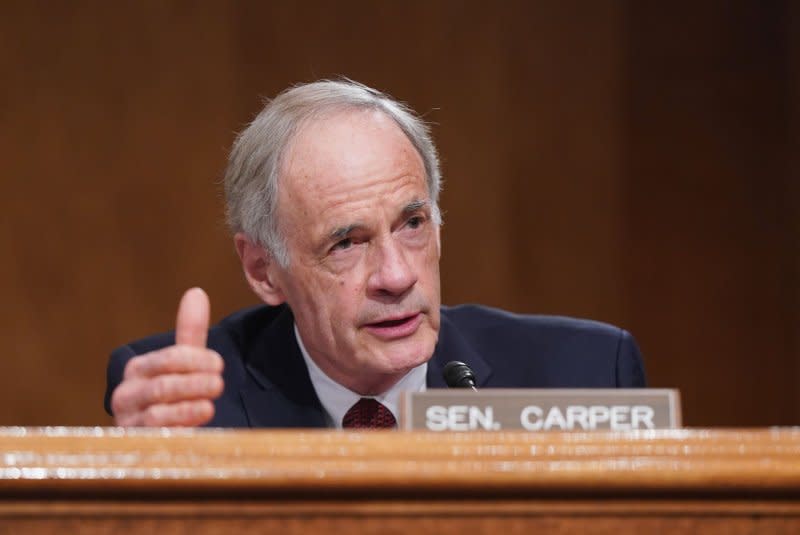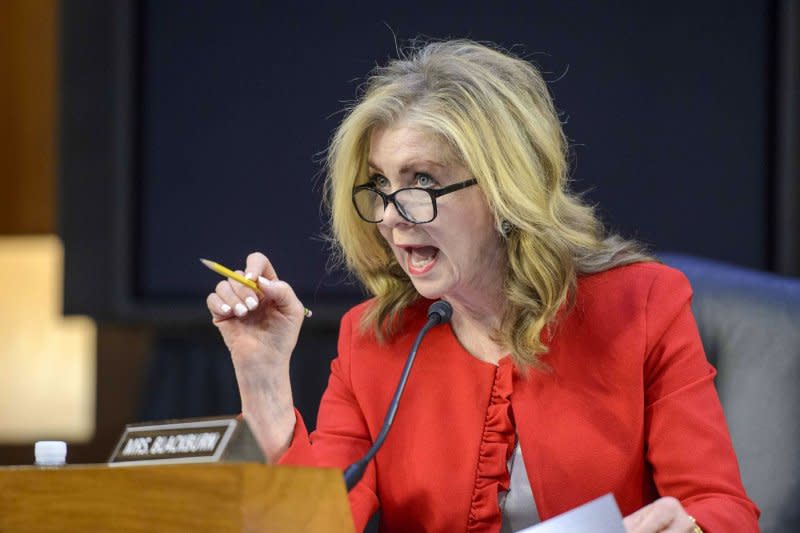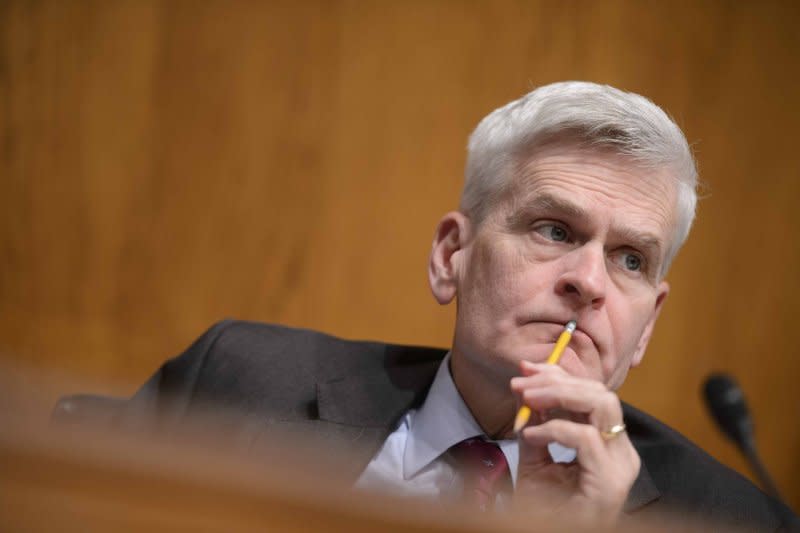Democrats call for more IRS funding to combat tax avoidance schemes

WASHINGTON, Nov. 9 (UPI) -- Democratic senators urged Congress at a Senate Finance Committee hearing on Thursday to provide more funding to the Internal Revenue Service so that greater scrutiny can be applied to ultra-wealthy Americans who exploit tax loopholes.
Last week, House Republicans proposed a bill that would cut $14.5 billion to the agency in exchange for $14.3 billion in support to Israel as its conflict with Hamas continues. The bill is likely to be dead on arrival at the Democrat-controlled Senate, and President Joe Biden has threatened to veto it.
Sen. Thomas Carper, D-Del., said more funding to the IRS would provide the agency better technology and more auditors to enforce tax compliance.
At Thursday's hearing, senators focused on the tax avoidance strategy known as "buy, borrow, die." Wealthy individuals accumulate assets, take out loans against their portfolio and pass on their wealth to their heirs.
Chairman Bob Wyden, D-Ore., said this allows for rich Americans to avoid paying their fair share of taxes.

"Tax laws just don't apply to billionaires," Wyden said.
Chye-Ching Huang, director of New York University's Tax Law Center, said this tax discrepancy is exacerbated by low interest rates and under-reporting of taxable income. Huang said the ultra-wealthy rely on stocks and real estate as their main source of income, rather than typical salaries.

Morris Pearl, the chair of Patriotic Millionaires, a nonprofit group made up of high-wealth members, said the tax code disproportionately applies to the middle class, rather than America's top earners.
"The original sin of our tax code is the way we value money and wealth above working wages," Pearl said.
Pearl said he recognized his own wealth means he is part of the demographic of taxpayers who were being scrutinized in the hearing.
"To be clear, I have nothing against being rich," Pearl said. "I lead an organization of millionaires, and we know being rich is great."
However, Pearl said since he is able to follow the tax code, so should every other millionaire. Pearl said his concerns apply to the top rung of the ultra-wealthy who should not be exempt from the tax code.
Republicans, however, warned greater IRS oversight would hurt working-class individuals.
Sen. Marsha Blackburn, R-Tenn., said more IRS funding would be an overreach and that more audits would intimidate "Main Street businesses."
Ranking member Mike Crapo, R-Idaho, said he was skeptical of the need to increase IRS funding in order to achieve greater taxpayer compliance, which he said is at 85%.
Huang, however, said the funding of IRS resources, such as better technology and more auditors, would not translate into increased oversight of middle America. Huang said audits and efforts to increase compliance would be aimed at the wealthy.
"People think about compliance and enforcement as a scary thing, but sometimes it's as simple as having the IRS be able to answer a question for someone who wants to do their taxes well and would make an error if they couldn't get a straight answer," Huang said.
Pearl said increased IRS funding is not a guaranteed way to achieve complete taxpayer compliance, but it's a start toward enforcing the tax code on the rich.
"If you're concerned about compliance, well sure, if you lower the tax rates to zero, you'll get 100% compliance," Pearl said. "But I don't think that will actually solve the real problem, which is fairness in our country and funding for our government."
Sen. Bill Cassidy, R-La., criticized the tax system for allowing wealthy Americans to underreport their taxable income and urged Congress to work together to resolve the issue.
Wyden echoed these calls for bipartisanship and said he is hopeful the committee can find a solution that minimizes harm for all economic classes.
"To get a tax system that gives everybody in America the chance to get ahead, it has to be built on the idea of being fair," Wyden said.

 Yahoo News
Yahoo News 
